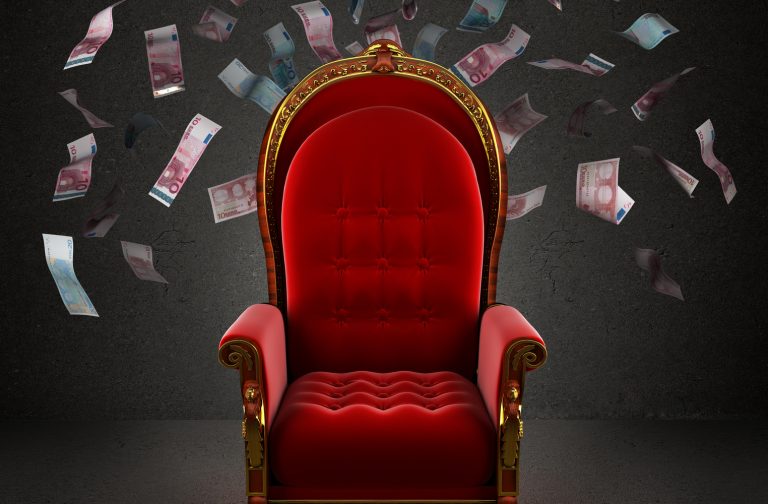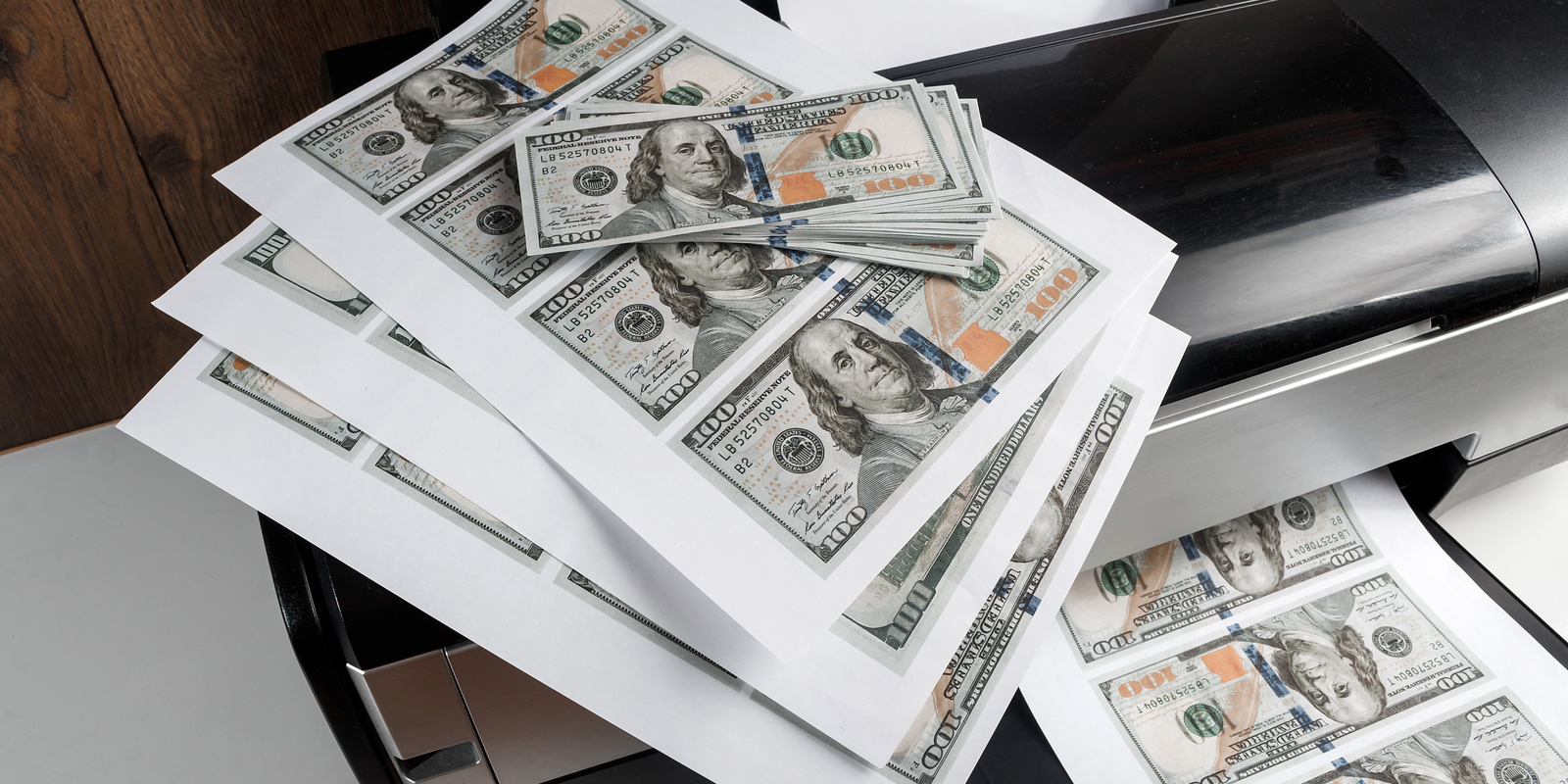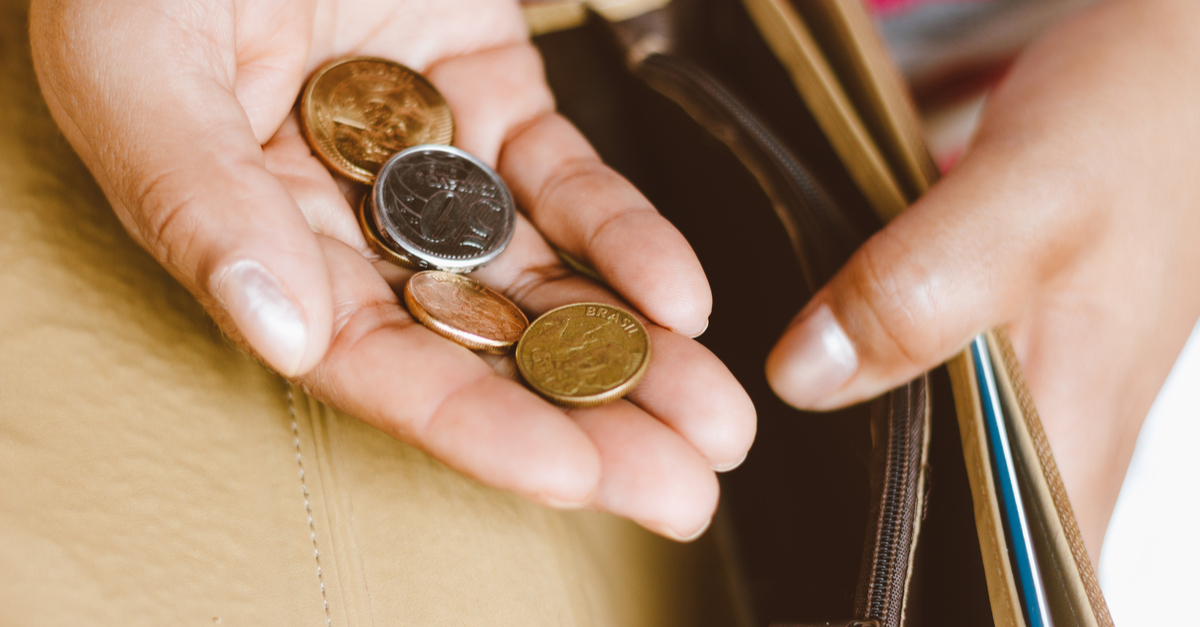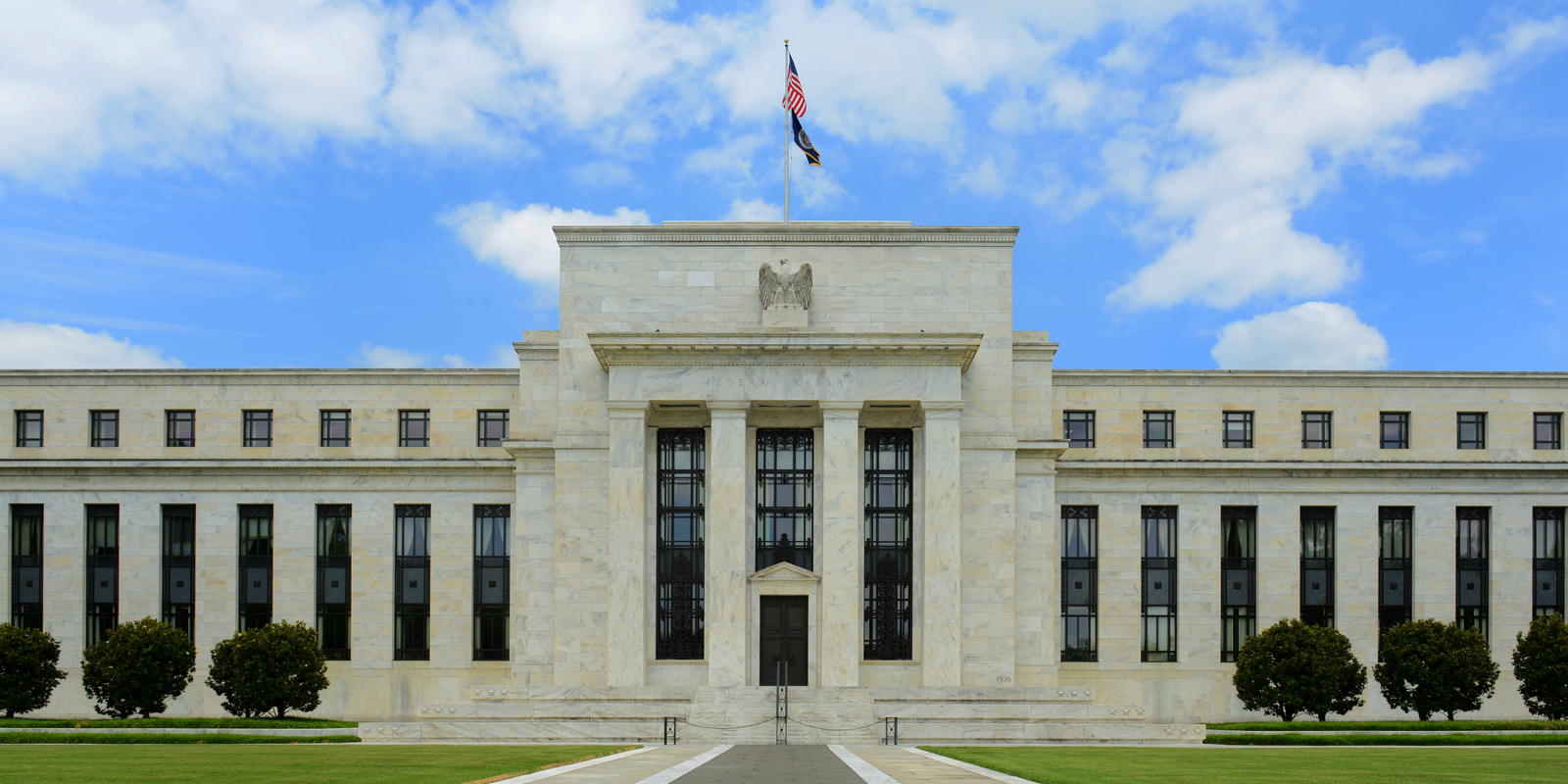Crypto Secularizes Wealth by Returning Power to the People
Publikováno: 5.11.2019
 Secularization is the process of converting something from a religious status to a nonreligious one. In its usage here, the word “religious” has no necessary connection to a deity. The word refers to the mystification of a thing in order to elevate it to the status of the divine where it becomes unquestionable. Also Read: […]
Secularization is the process of converting something from a religious status to a nonreligious one. In its usage here, the word “religious” has no necessary connection to a deity. The word refers to the mystification of a thing in order to elevate it to the status of the divine where it becomes unquestionable. Also Read: […]
The post Crypto Secularizes Wealth by Returning Power to the People appeared first on Bitcoin News.

Secularization is the process of converting something from a religious status to a nonreligious one. In its usage here, the word “religious” has no necessary connection to a deity. The word refers to the mystification of a thing in order to elevate it to the status of the divine where it becomes unquestionable.
Also Read: The Big Lie Perpetuated by Central Banks
Mystifying Money
The state is mystification on overdrive. Past governments have sanctified themselves through “the divine right of kings,” by which monarchs claimed to be chosen by God to rule. Rebellion against the king, therefore, was rebellion against God himself. Contemporary states use more modern concepts like “democracy” or “the motherland” to justify their status. These concepts arouse feelings of awe and reverence, which further sanctifies the state and discourages dissent.
The state’s goal is to usurp power and wealth from society—the productive sector.
Taxation is the most visible way it does so, but the state’s ability to issue fiat that becomes mandatory currency is equally or more important. To do so successfully, however, the state needs society to accept and use the paper money. Some people will comply out of fear of being punished, but it is far more efficient if society conflates fiat with real wealth. If fiat can be mystified as legitimate, then the resistance is sidestepped.
Much of fiat’s perceived legitimacy comes from its source—the state—because the state is still seen as a rightful authority. Fiat is further cemented into society through state-validated means like legal tender laws and the Federal Reserve System. “High finance” is removed from average, unlicensed people and channeled through bureaucracies like the SEC and the central banking system. And, in case some people still question, tax-paid academics and experts provide the state with intellectual ammunition. Like court historians of the past who rewrote history to glorify their monarchs, the experts present convoluted economic theories that support the state’s monetary policy, using as much math and arcane language as possible.
As long as money is “created” by politicians, bureaucrats, and experts, society and individuals will never control their own wealth—at least, not in a sanctioned or safe way. A heresy is growing, however. Call it private money or cryptocurrency, nothing is more heretical than free-market money that the individual decides is of value to him.

Free Market Money vs Inflationary Paper
The state calls private money “the enemy.” Crypto is new, and it moves like the wind. The state cannot compete with it; the state does not even understand how to reproduce or to regulate it. Nor is this likely to happen in the future because blockchain-crypto is antagonistic to the mindset and mode of statists. Blockchain-crypto is the individual’s control of his own assets according to his own judgment. It is the secularization of wealth.
The fastest way to speed along the secularization of assets is to delegitimize fiat by exposing the intentional damage it does to society and individuals. In 1963, the Austrian School Economist Murray Rothbard wrote an influential book entitled What Has Government Done to Our Money? (An advocate of private money, Rothbard’s use of the word “Our” is notable.) The short book springboards off the insights of other Austrian School thinkers, such as Ludwig von Mises, who argued that money originated spontaneously due to the need of individuals to exchange on a more complicated level than barter. Money is a free-market phenomenon that the state appropriates through force. Fiat and the free market are antithetical.
Rothbard’s book explains one way in which free-market money and fiat cannot coexist: inflation, by which the first recipients of an increase in fiat money are enriched at the expense of the end recipients for whom the money has been debased. In short, the end recipient is robbed. Rothbard refers to inflation as “counterfeiting” because it is a creation of new money that is backed only by the false sanctity of the state, and its guns. But even the state cannot prevent its paper money from decreasing in value. Rothbard writes:
“Suppose the economy has a supply of 10,000 gold ounces, and counterfeiters [the state]…pump in 2000 ‘ounces’ more. What will be the consequences? First, there will be a clear gain to the counterfeiters [the state]. They take the newly-created money and use it to buy goods and services. In the words of the famous New Yorker cartoon, showing a group of counterfeiters in sober contemplation of their handiwork: ‘Retail spending is about to get a needed shot in the arm.’ Precisely. Local spending, indeed, does get a shot in the arm…As the new money spreads, it bids prices up—as we have seen, new money can only dilute the effectiveness of each dollar. But this dilution takes time and is therefore uneven; in the meantime, some people gain and other people lose…The first receivers of the new money gain most, and at the expense of the last receivers. Inflation, then, confers no general social benefit; instead, it redistributes the wealth in favor of the first-comers and at the expense of the laggards in the race.”
Describing inflation as “counterfeiting” is a charming departure from the usual legitimacy granted to fiat; it nicely captures the idea of inflation as theft and the state as illegitimate.
Most people have some understanding of the effect of direct inflation on prices because they see their own cost of living rise. But other, more subtle effects are as disastrous. One is a market distortion that Rothbard calls a “keystone of our economy: business calculation.” This calculation occurs when a business compares the cost of operation to the expected demand by customers. The calculation is one of the main cost-benefit analyses without which the free market cannot function well. The impact of crippling business calculation is rarely noted, however.

Inflation Distorts Critical Economic Calculations
Since prices do not all change uniformly and at the same speed, it becomes very difficult for business to separate the lasting from the transitional, and gauge truly the demands of consumers or the cost of their operations. For example, accounting practice enters the “cost” of an asset at the amount the business has paid for it. But if inflation intervenes, the cost of replacing the asset will be far greater than that recorded on the books. As a result, business accounting will seriously overstate their profits during inflation—and may even consume capital while presumably increasing their investments. Similarly, stock holders and real estate holders will acquire capital gains during an inflation that are not really “gains” at all. But they may spend part of these gains without realizing that they are thereby consuming their original capital.
The illusory profits also “suspend the free market’s penalizing of inefficient, and rewarding of efficient, firms.” Equally, inflation distorts people’s personal lives by punishing economic virtues like thrift. If $100 borrowed today can be repaid tomorrow with money that has a lower purchasing value, then at least three consequences are likely to follow. People will embrace borrowing rather than saving. They will spend the money they borrow or earn; “people will say: ‘I will buy now, though prices are high, because if I wait, prices will go up still further’. As a result, the demand for money now falls and prices go up more, proportionately, than the increase in the money supply.” Lenders become tight fisted.
The state typically addresses this “money shortage” by cranking up the printing press again, and the cycle of inflation continues. At some point, the entire system of fiat begins to break down, and individuals—even those inclined to obey—seek out alternative currencies or stores of value. At this point, the state’s veneer of sanctity also starts to crack. To maintain its monetary hold, it must either ban the alternatives or control them. Either tactic carries danger, however. Just as legitimization of the state makes individuals obey, the blatant misuse of power makes them resist.

Leaving the Church of Force-Based Money
The best time to resist and demand financial freedom is right here and now before the system goes any farther off the rails. The rebellion comes when a nexus of at least three factors occurs.
The first is when people fully grasp the monetary scam being committed by the state. In this endeavor, What Has Government Done to Our Money?is invaluable.
The second factor is when they realize the state and society cannot peacefully coexist. The state destroys all of value in society such as voluntary exchange, respect for rights, and a reputation built on honesty. The battle against monetary statism is not against any particular politician or public policy like inflation. The issue is deeper. The battle is against an entrenched tolerance of the state’s aggression. The 18th-century anarchist William Godwin expressed the human importance of rejecting aggression. “Force is an expedient, the use of which must be deplored. It is contrary to the intellect, which cannot be improved but by conviction and persuasion. Violence corrupts the man who employs it and the man upon whom it is employed.” If Godwin is correct, as I believe he is, then sanctifying the state is an act of inhumanity.
The third factor in the nexus is the existence of practical alternatives to fiat. Without alternative forms of free-market currency and wealth, those who stand up for financial freedom can all too easily become martyrs crushed by the state. And religions have already produced enough of those.
What are your thoughts on the “church” of fiat money? Let us know in the comments section below.
Op-ed disclaimer: This is an Op-ed article. The opinions expressed in this article are the author’s own. Bitcoin.com is not responsible for or liable for any content, accuracy or quality within the Op-ed article. Readers should do their own due diligence before taking any actions related to the content. Bitcoin.com is not responsible, directly or indirectly, for any damage or loss caused or alleged to be caused by or in connection with the use of or reliance on any information in this Op-ed article.
Images courtesy of Shutterstock.
Did you know you can buy and sell BCH privately using our noncustodial, peer-to-peer Local Bitcoin Cash trading platform? The Local.Bitcoin.com marketplace has thousands of participants from all around the world trading BCH right now. And if you need a bitcoin wallet to securely store your coins, you can download one from us here.
The post Crypto Secularizes Wealth by Returning Power to the People appeared first on Bitcoin News.